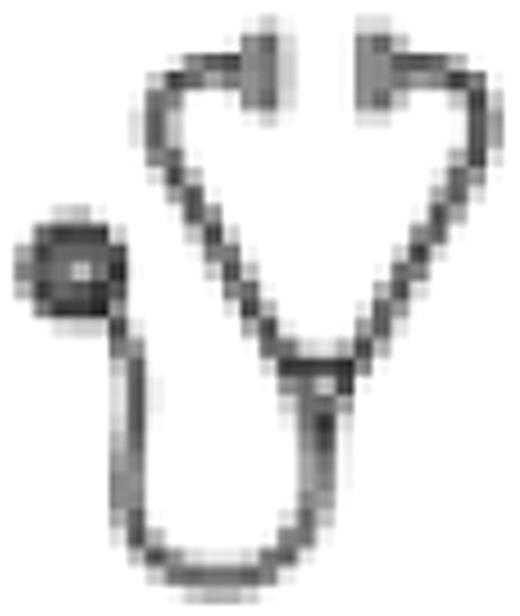Abstract
Abstract 4237
PNH is a chronic, life-threatening, acquired disease associated with deficiency of GPI-anchored complement inhibitory proteins on blood cells. The resulting defective regulation of terminal complement activation is responsible for hemolysis and can lead to thromboembolism (TE), chronic kidney disease (CKD) and pulmonary hypertension. The risk of TE is high, with an observed 6.24 venous TE events per 100 patient years, or approximately 62-fold higher compared to the general population: in fact, TE accounts for 40–67% of PNH related deaths. The effectiveness of anticoagulation (AC) in PNH patients (pts) is uncertain, as AC treated PNH may still experience TE. The terminal complement inhibitor eculizumab reduces intravascular hemolysis rapidly and significantly; it also leads to a reduction in TE events, pulmonary hypertension and improvements in CKD and quality of life. Here, we report on prolonged treatment of PNH patients with eculizumab for safety and sustained patient outcomes.
All pts (N=195) in the PNH eculizumab clinical trials (Pilot (N=11), TRIUMPH (N=87) and SHEPHERD (N=97)) and subsequent Extension studies were assessed for long term safety and efficacy. Median age was 40 yrs, 54% female, 29% had a history of aplastic anemia and 1.5% with history of myelodysplasia. TE was reported in 32% (63/195) of pts prior to eculizumab treatment. There was high adherence to long term treatment; 90% (175/195) of pts completed the parent and extension trials. Results: The median eculizumab treatment duration was 29 mo (1 -66; IQR:23-32m); with a total eculizumab exposure of 474.1 patient-years. Intravascular hemolysis was rapidly reduced in 100% of pts after eculizumab treatment. LDH was reduced from a median of 2,133 U/L (∼10x ULN) at baseline to 310 U/L at 1 month of treatment (P<0.0001) and was sustained at 272U/L at 36 months (P<0.0001). There was an 81% (P<0.0005) reduction in TE events from 52 pre treatment events to 10 trial events using a match time analysis (P<0.0005). Of the 7 (7/195) pts who experienced a TE on drug, 5 had a history of TE and 2 were concomitantly treated with AC. Of pts treated with AC, 59% (58/98) experienced at least 1 TE prior to treatment. In 11 pts who discontinued AC, there were no TE reported with eculizumab treatment during or following AC discontinuation. Prevalence of CKD was reduced from 69% of pts at baseline to 31% (n=29) after 36 months of treatment, consistent with previous results. A fraction of pts still require blood transfusions and a fraction of pts, even without need for blood transfusions, had no significant increase (>1gm/dL) in steady state hemoglobin level over baseline. Eculizumab was well tolerated. Twenty pts (∼10%) did not complete the trial including 9 pts following a reported adverse event (AE). In 16 week follow-up to the 20 pts who discontinued eculizumab treatment, TE was reported in 3 pts, including 1 death. Most AEs (95%) were mild or moderate in severity and 90.8% of adverse events were deemed unrelated to study drug. Frequent AEs were: nasopharyngitis, (40%); headache (37%) and upper respiratory tract infection, (31%). There were 2 cases of meningococcal sepsis and both were successfully treated without sequelae. Serious infections were reported in 21% of pts and 2 pts discontinued therapy due to infections (meningococcal, staphylococcal sepsis: both resolved). Most commonly reported serious infections included pyrexia (4.6%) and viral (3.1%), lower respiratory tract (1.5%) and urinary tract (1.5%) infections. There were 4 patient deaths during treatment. Three deaths were considered not related to study drug and 1 possibly related to study drug by the investigator. Causes of death were progression from myelodysplasia to chronic myelomonocytic leukemia, adenoma progressing to adenocarcinoma, brain herniation following trauma injury, and TE of the small bowel. Conclusion: Long term treatment of PNH pts with eculizumab is associated with a favorable benefit/risk ratio and the clinical benefits demonstrated at earlier timepoints are sustained over 36 months. Improvement in TE and CKD was maintained over 36 months when compared to baseline and previous published data. Considering that thrombosis and CKD have been demonstrated to be significant causes of death in PNH, it is reasonable to expect that eculizumab treatment, by decreasing the risk of thrombosis and improving renal function, may increase the life expectancy of PNH pts.
Brodsky:Alexion Pharmaceuticals, Inc: Membership on an entity's Board of Directors or advisory committees. de Castro:Alexion Pharmaceuticals, Inc: Speakers Bureau. Schrezenmeier:Alexion Pharmaceuticals, Inc: Honoraria, Membership on an entity's Board of Directors or advisory committees. Risitano:Alexion Pharmaceuticals, Inc: Honoraria, Membership on an entity's Board of Directors or advisory committees, Research Funding. Schubert:Alexion Pharmaceuticals, Inc: Consultancy, Honoraria. Maciejewski:Alexion Pharmaceuticals, Inc: Consultancy. Duehrsen:Alexion Pharmaceuticals, Inc: Honoraria, Research Funding. Luzzatto:Alexion Pharmaceuticals, Inc: Honoraria, Membership on an entity's Board of Directors or advisory committees. Muus:Alexion Pharmaceuticals, Inc: Membership on an entity's Board of Directors or advisory committees, Research Funding. Szer:Alexion Pharmaceuticals, Inc: Consultancy, Membership on an entity's Board of Directors or advisory committees, Research Funding, Speakers Bureau. Socié:Alexion Pharmaceuticals, Inc: Consultancy. Hillmen:Alexion Pharmaceuticals, Inc: Consultancy, Honoraria, Membership on an entity's Board of Directors or advisory committees, Research Funding.

This icon denotes a clinically relevant abstract

This feature is available to Subscribers Only
Sign In or Create an Account Close Modal